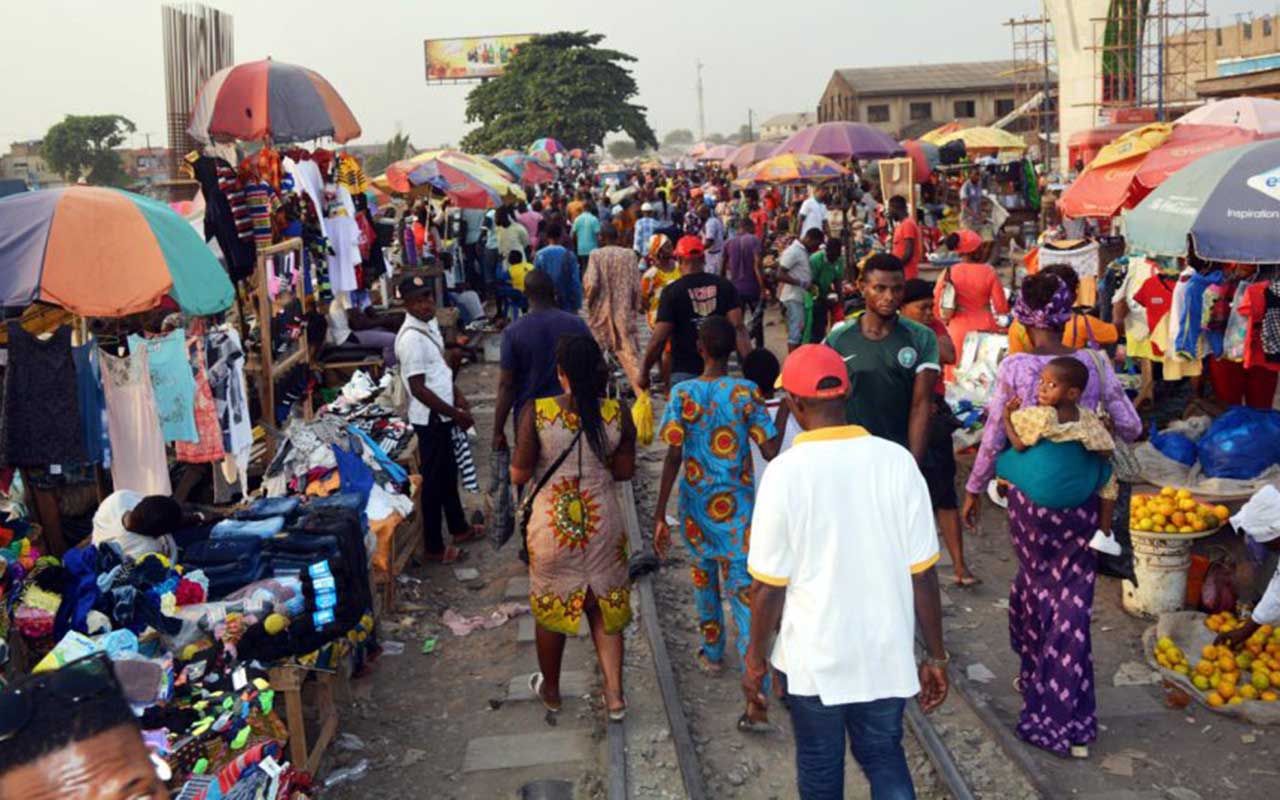
To qualify to be elevated to the Inner Bar, the Legal Practitioners Privileges Committee (LPPC) expects every candidate to have confidential recommendations from at least two Justices of the Supreme Court, in addition to the other requirements. While struggling to determine my choice of referee, I was at the Supreme Court on a particular day and had cause to meet with some members of staff of the court.
I was asking them about the Justices of the Supreme Court, one after the other. I realised that they did not mention her name, so I asked them pointedly. They said “Mama is a no go area”, meaning that I should skip her in my consideration. According to them, she was another Justice Aloma Mukhtar (former CJN) in the Supreme Court. Very incorrigible, she does not accept gifts from anyone, she does not tolerate visits to her Chambers and she cannot be compromised on any issue at all, according to them. They spoke highly of her, her brilliance and her personal character.
On August 23, 2024, Honourable Justice Kudirat Motomori Kekere-Ekun was sworn in as the 32nd Chief Justice of Nigeria in acting capacity. This was after the mandatory retirement of Honourable Justice Olukayode Ariwoola and following the President’s acceptance of her recommendation by the Federal Judicial Service Commission.
The new CJN is one that can be properly classified as the real judge, having risen through the ranks from the Magistrate Court, to the High Court, the Tribunals, the Court of Appeal and eventually the Supreme Court.
She was also in private practice for a brief period. And I guess this is why expectations from Nigerians concerning her are very high. Hon Justice Kekere-Ekun has been in the Supreme Court long enough to understand the workings of the apex court.
She was also deputy to the Chief Justice of Nigeria in many capacities, in the Supreme Court administration, in the LPPC, in the National Judicial Council, etc. This piece is only a brief guideline of what My Lord may consider as part of her programme of action for the judiciary that is now under her able watch.
Judicial reforms
Reforms generally speak of drastic changes in order to improve on the state of things and this will include several amendments, corrections and decisive actions. Substantially, the majority of the issues facing the judiciary are caused by irrelevant and archaic legislation. The law regulating evidence in our courts is totally old fashioned, dictating procedures that defeat the ends of justice. How for instance can a person who duly certified a document as true and genuine still turn around in court to challenge the admissibility of that document? The technicalities surrounding tendering and use of documents in court have all been overtaken by developments in technology.
Working with her fellow justices, lawyers and other stakeholders, My Lord the CJN must take a bold look at the Evidence Act and present a draft to the National Assembly that will ensure justice and equity. Immediately following this is the Supreme Court Rules. Apart from the Constitution, the Supreme Court Rules is the most important document guiding the practice and procedure of that Court. The Rules should be amended to allow the justices sit in the various geo-political zones of the country, to clear the backlog of appeals in those zones.
For the first time in many years, we now have the full complement of the Supreme Court, with about twenty-one justices sitting in the Court. What this should mean for the ordinary Nigerian is that the Supreme Court should sit everyday that the Court has been designed to sit and no case or appeal should be adjourned for whatever reason.
For this to happen, it means there will be at least fourteen Justices of the Court available for judicial business everyday from Monday to Thursday, since most Fridays are reserved for the delivery of judgments. This will leave the Court with seven other Justices on the reserve list as alternatives. With this, two Panels of the Court will sit everyday.
In addition to this, the proceedings of the Supreme Court should not be affected by other ceremonial matters such as valedictory services, seminars, workshops, meetings, etc. The ceremonial court should only be convened in the afternoon after the sitting of the Court, from 3pm. This is what presently obtains in Lagos State, wherein all valedictory court sittings are fixed for the afternoon.
There should be no reason why litigants and their lawyers will travel to Abuja only to be confronted with disruptions to the court schedule. Some of these cases took well over four or more years for dates to be assigned to them. Considering the cost of tickets to and from Abuja, hotel bills for counsel and the litigants, dates already fixed for the sitting of the court should remain sacrosanct.
Resolving interlocutory appeals
Two major developments have taken place in the life of the present administration, being the increase in the retirement age of judicial officers of the higher bench and 300 per cent increase in salary of judges. This has been the clamour of all stakeholders in the justice sector. To whom much is given, so much more is expected.
A radical decongestion of the Supreme Court is an urgent assignment for the CJN, especially in the area of interlocutory appeals. The technicality of leave and extension of time to appeal is doing grave havoc to the administration of justice in the appellate courts.
This should be simplified to reduce the technical interpretations surrounding the exercise of the right of appeal. In simple terms, all decisions of all courts should be appealable, be it on grounds of law, of facts or of mixed law and facts. The dichotomy created for these categories of appeals is unnecessary and should be jettisoned.
A visit to the registry of the Court of Appeal and the Supreme Court will show clearly that most interlocutory applications filed in these courts relate to the issues of leave to appeal and extension of time to appeal. They constitute avoidable hiccups in the prosecution of appeals and the attainment of justice within the appellate courts, which are presently seen as the burial ground of litigation.
It is to say the least scandalous to have applications for leave or extension of time to appeal pending in court for seven or more years. In most cases, proceedings of the case in the lower court are stayed to await these applications.
Virtual hearing
This then leads to the issue of delay in the hearing and determination of appeals. The Court of Appeal and the Supreme Court are presently designed to favour the party seeking to delay justice. Either as the appellant or the respondent, once the process of appeal is initiated, the better option for the parties is to embrace settlement of the issues in controversy between them. This happens to all categories of cases, including commercial transactions.
Effective justice delivery is key to investment decisions and what this means is that a system that drags the wheel of justice will not be a friendly destination for investors. So apart from the litigants and their lawyers, the nation is losing daily on account of our slow judicial system. The Supreme Court should embrace technology. We do not have a choice in this at all. Once sittings of the Supreme Court can be conducted virtually, a lot of the delays will be addressed. In embracing virtual proceedings, the Secretariat of the Court should be upgraded and empowered. To travel from Lagos, Warri or Kano to Abuja and be confronted with a situation whereby the network of the Supreme Court is down should not be heard in this day and age.
Prior to the day of the virtual hearing, the Secretariat of the Court would have conducted in-house pre-hearing proceedings and sessions with the lawyers, to identify their various processes, to be sure that all is set for a true hearing. The Supreme Court should not be confronted on the day of hearing with absence of briefs of arguments, lack of service of processes or hearing notices and the like.
If an application or an appeal is incompetent for any reason, this should be disclosed to counsel so that the case is not listed at all. In addition to this also is that the website of the Supreme Court should be alive, functional and active, containing all relevant information about the court, the laws establishing the court and all the rules guiding its practice and procedure. The website should also contain all the judgments of the court in their unedited versions.
SAN applications
It was recently disclosed by a retired Justice of the Supreme Court that one of the issues leading to overcrowding in the docket of the appellate courts is the quest by lawyers seeking elevation into the Inner Bar. Presently, every candidate who desires to be elevated to the prestigious Rank of Senior Advocate of Nigeria is required to have at least five concluded judgments of the Court of Appeal and four concluded judgments of the Supreme Court.
First, it is suggested that the LPPC should raise the qualification to the Inner Bar to fifteen or twenty years post-call. In the list of candidates published every year, hardly do you find those who are below this category.
Secondly, judgments of the High Court, Court of Appeal and the Supreme Court to be front loaded for any application should be the ones in which counsel filed the original pleadings, notice of appeal and brief of argument. It should be a case that originates from counsel as his own matter for which he was personally and originally briefed by the client, not inherited or amended. Thirdly, the validity of the cases should be limited to five years, so that applicants who desire elevation are those who are still actively involved in litigation and are thus familiar with latest developments in advocacy.
Adegboruwa is a Senior Advocate of Nigeria (SAN).






